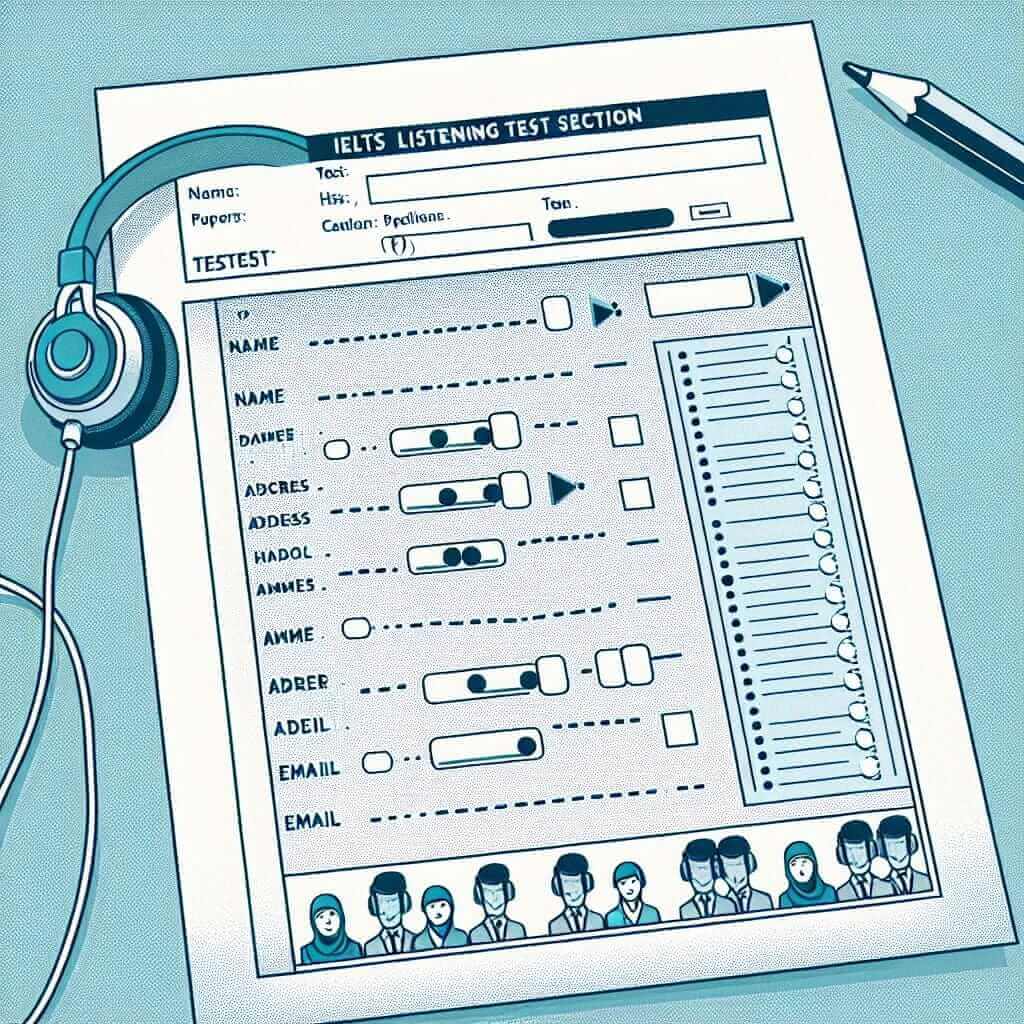The Importance of Listening Skills in the IELTS Exam
Mastering listening skills is crucial for achieving a high band score in the IELTS exam. It’s not only tested as a separate section but also plays a vital role in your performance in the Speaking and Writing sections. By honing your listening comprehension, you can understand spoken English better, expand your vocabulary, and gain valuable insights into different accents and speaking styles.
Effective Strategies to Enhance Your Listening Skills
Here are some proven strategies to help you improve your listening skills significantly:
1. Familiarize Yourself with Different Accents
The IELTS Listening test features a range of native English accents, including British, American, Australian, and Canadian. Familiarizing yourself with these accents will improve your comprehension and reduce anxiety during the exam.
- Listen to a variety of English accents: Utilize resources like podcasts, news channels (BBC, CNN, ABC), and movies to expose yourself to different accents.
- Focus on intonation and pronunciation: Pay attention to how words are stressed and pronounced in each accent.
- Practice transcribing audio with different speakers: This will train your ear to decipher words and phrases spoken with various accents.
2. Develop Active Listening Habits
Active listening is essential for understanding and retaining information. Avoid passive listening where your mind wanders.
- Focus on keywords and phrases: Train yourself to identify crucial information by paying attention to keywords and phrases.
- Predict content: Before listening to a recording, try to anticipate the topic and possible content based on the given questions.
- Take effective notes: Develop a note-taking system that works for you, focusing on keywords, dates, numbers, and key ideas.
3. Utilize a Variety of Listening Resources
Don’t limit yourself to practice tests alone. Diversify your listening materials to make the process more engaging and effective.
- Listen to podcasts and audiobooks: Choose materials that align with your interests to maintain motivation.
- Watch documentaries and English-language films: Pay attention to the dialogue and try to understand the context.
- Engage in English conversations: Practice your listening skills in real-life scenarios by conversing with native English speakers or language partners.
4. Practice Regularly with IELTS Listening Tests
Consistent practice is key to success in the IELTS Listening test.
- Use official IELTS practice materials: Familiarize yourself with the test format, question types, and time constraints.
- Analyze your mistakes: After each practice test, carefully review your answers and identify areas where you struggled. Focus on improving your weaknesses.
- Time yourself: Simulate exam conditions by completing practice tests within the time limit.
 ielts listening test example
ielts listening test example
Example from IELTS Listening Test
Let’s look at an example from a Section 1 listening task:
You will hear a conversation between a customer and a travel agent. Complete the form below.
Holiday Booking Form
- Name: _____
- Destination: _____
- Number of people: ___
- Departure date: ___
(Audio plays a conversation about a holiday booking)
By actively listening for keywords like “name,” “destination,” “people,” and “departure,” candidates can effectively extract the necessary information and complete the form.
Tips for Success in the IELTS Listening Test
- Read the instructions carefully: Before each section begins, thoroughly read and understand the instructions and questions.
- Use the time allocated to preview questions: Utilize the time given before each recording to read the questions, underline keywords, and anticipate potential answers.
- Focus on understanding the overall meaning: Don’t panic if you miss a few words. Try to grasp the main ideas and context.
- Check your answers carefully: Use any remaining time to review your answers and ensure accuracy. Pay attention to spelling and grammar.
Conclusion
Improving your IELTS listening skills requires dedication, consistent effort, and a strategic approach. By following these tips and practicing regularly, you can significantly enhance your listening comprehension and boost your confidence for the IELTS exam. Remember to be patient with yourself, stay motivated, and enjoy the process of learning!


